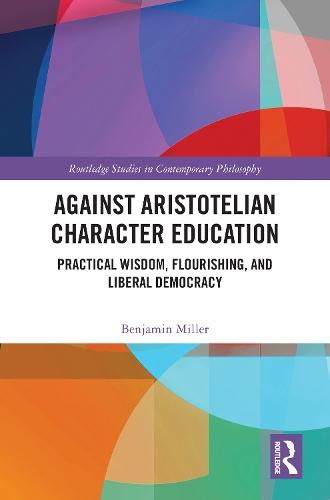Overview
This book argues that Aristotelian character education cannot work in liberal democracies today. It shows that when we clearly understand the basic structure of Aristotle’s value theory and correctly grasp the core requirements of liberalism, we will see that they are incompatible with one another through and through. Neo-Aristotelian theories of character have been immensely influential, receiving endorsements from academics, educators, and elected representatives while establishing and influencing major academic centers and numerous K-12 schools, especially in the UK and US. This book argues that despite its meteoric rise and its widespread public influence, neo-Aristotelian character education should be rejected. The author argues that the underlying structure of the theory is incompatible with the sort of value pluralism and antipaternalism that liberal democracies require. The main features that make Aristotelianism attractive—its robust theory of human flourishing that grounds character and its account of the virtue of practical wisdom—are the very same features that make its educational theory illiberal. Understanding the problematic structure of neo-Aristotelian education helps us to better grasp the demands of liberal democracy while also bringing attention to the neglected question of how education for democratic citizenship can be made to fit with equal respect and tolerance of all liberal-compatible ways of living and worldviews. Against Aristotelian Character Education is essential reading for scholars and graduate students interested in philosophy of education, education theory, virtue ethics, practical wisdom, political theory, and Aristotle.
Full Product Details
Author: Benjamin Miller (University of Illinois Urbana-Champaign, USA)
Publisher: Taylor & Francis Ltd
Imprint: Routledge
Weight: 0.700kg
ISBN: 9781032960685
ISBN 10: 103296068
Pages: 276
Publication Date: 12 August 2025
Audience:
College/higher education
,
Professional and scholarly
,
Tertiary & Higher Education
,
Professional & Vocational
Format: Hardback
Publisher's Status: Active
Availability: Not yet available

This item is yet to be released. You can pre-order this item and we will dispatch it to you upon its release.
Reviews
“Miller advances three compelling lines of argument to show that Aristotle thinks that practically wise people use the knowledge of a detailed ‘grand end’ to steer by when making decisions. Building on his interpretation of Aristotle, Miller argues persuasively that neo-Aristotelian theories of education are committed to the view that government should inculcate specific conceptions of practical wisdom and the human good in its citizenry. Miller concludes that character education violates liberal neutrality. This is a well-argued, thought-provoking challenge to neo-Aristotelian virtue education. Ignore it at your peril.” Howard J. Curzer, Texas Tech University, USA
“Miller advances three compelling lines of argument to show that Aristotle thinks that practically wise people use the knowledge of a detailed “grand end” to steer by when making decisions. Building on his interpretation of Aristotle, Miller argues persuasively that neo-Aristotelian theories of education are committed to the view that government should inculcate specific conceptions of practical wisdom and the human good in its citizenry. Miller concludes that character education violates liberal neutrality. This is a well-argued, thought-provoking challenge to neo-Aristotelian virtue education. Ignore it at your peril.” Howard J. Curzer, Texas Tech University, USA
Author Information
Benjamin Miller is Assistant Professor in the Department of Political Science at the University of Illinois at Urbana-Champaign, USA.



